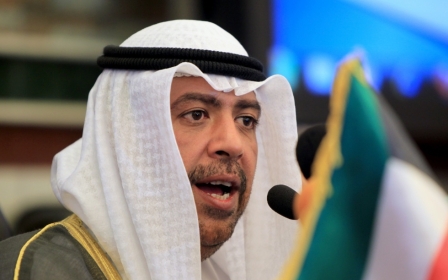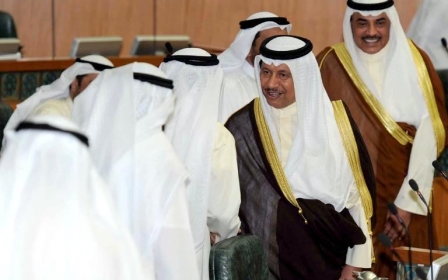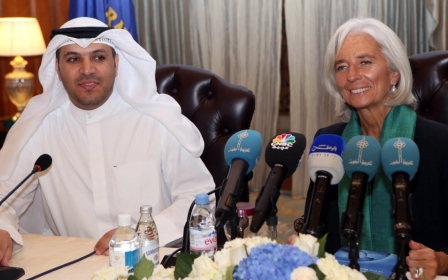Kuwait to deport online activist for criticising leader

Kuwait is to deport an online rights activist for criticising the country's leader, Emir Saad Al-Abdullah Al-Salim Al-Sabah, and the ruling government.
The country’s appeals court upheld the ruling against Abdullah Fairouz Abdullah Abd al-Kareem on Thursday.
The activist, who has a Kuwaiti father and holds Kuwaiti nationality, will serve a five-year jail sentence before being removed from the country. It is a crime in Kuwait to criticise the ruler.
Kareem’s mother, who is Egyptian, won a court ruling determining her son’s right to citizenship, but the court said that since he had not yet obtained an ID card, he would be treated as a foreigner.
He may still appeal to the supreme court.
Human Rights Watch condemned the ruling as “shocking”.
“Kuwait has made clear through the recent string of cases that it is willing to trample on people’s rights to protect the emir from criticism,” said Nadim Houry, deputy Middle East and North Africa director at Human Rights Watch.
“Kuwait should be calling a halt to its embarrassing campaign to silence dissent, not ramping it up with permanent exile orders.”
At least 18 politicians, journalist and online activists have been jailed since 2012 for offending the emir.
Last month, five Kuwaiti MPs quit because the pro-government chamber refused to question the prime minister about allegations of corruption and mismanagement.
The Kuwaiti authorities have come down hard on critics of the government in recent months.
On Wednesday, several television news channels were banned from airing an investigation into an alleged plot against the ruling Royal family.
A tape purporting to reveal a plot against the Kuwaiti system was released in April on YouTube, prompting a flurry of speculation about a split in the ruling royal family.
Human rights campaigner Nawaf Alhendal says that the government’s crackdown is making life much harder for those calling for reform.
“I think, in the coming days, it will be difficult,” he told Middle East Eye. “Anyone has to be careful when he writes any tweet or does anything. The government will arrest anyone.”
Alhendal pointed out the importance of online activism since protests began in the country in 2011 for Kuwaitis to connect and organise.
“All Kuwaitis are using twitter and they say what they want to say,” Alhendal said. “What they want to say for the emir, or the government, that’s the first place for them. “
Kuwait has been thought of by many as having a more open political system than many of the Gulf states.
The country's 50-member parliament is able to question ministers and block legislation, althought the emir has final word on state affairs.
New MEE newsletter: Jerusalem Dispatch
Sign up to get the latest insights and analysis on Israel-Palestine, alongside Turkey Unpacked and other MEE newsletters
Middle East Eye delivers independent and unrivalled coverage and analysis of the Middle East, North Africa and beyond. To learn more about republishing this content and the associated fees, please fill out this form. More about MEE can be found here.




